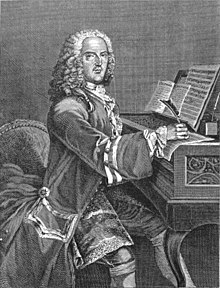Composer
A composer is a person "who makes musical compositions". He is someone who knows how to write musical compositions according to artistic standards, where he basically organizes a series of sounds based on the parameters of the theory. There is the dramatic composer, who composes operas, and the symphonic composer, who composes symphonic music.
The composer is the one who invents music by working the sounds in an imaginative way in order to be able to create his own music, he is the one who has the ability to speak through the sounds. Speaking could be said to be the equivalent of improvising in music and writing would be the equivalent of composing. The composer is the one who makes the music. He creates a musical product that can then be interpreted on different occasions by other people and can be fixed on a support, for example, recorded.
This is because music is an ephemeral art form that needs to be fixed in some way.
That is why the composer, although he normally uses improvisation, most of the time leaves a written record of his compositions.
Artist or craftsman
The composer is not only an artist, he is also a craftsman and an inventor. Although the history of music shows us some geniuses, the idea that composers are touched by the magic wand of inspiration is a myth.
The composer, whose raw material is sounds and is the one who decides which instruments to use, must first learn composition techniques and then work hard at his job, practice, make mistakes and erase, try new experiences and thus he learns by trial and error of their own experiences. Improvisation and listening are important, the composer listens to what he creates and then decides to continue or modify it.
It is generally accepted that sounds correspond to ideas and that the composer is expressing his ideas about art, music or life, through his style and his compositions. Musical ideas change depending on when the composer lives. Attempts to label composers by style or by historical period are due to the viewer's desire to group elements that he considers to be similar.
Speaking of a classical composer or a modern composer, of a Baroque composer or a Renaissance composer, resides in the conviction that all the others are going to interpret it in the same way. The further back in time the studied composer lived, the easier it is to label him because the listener or the one who studies him knows little about that time and it is easier to consider many years in a single block. Whereas when the composer gets closer to our historical period, we can get to know him better and notice the subtle differences and knowing these details helps not to mix everything up.
History
Very little is known about the composers of the early eras. Among the few we know of is Mesomedes of Crete, a Greek composer of the early II century. The first attempts to fix the pitch of sounds took place in the IX century. Primitively, music was preserved by oral tradition and was not written down. From the IX century we still have references to the fame of Ziryab, whose musical innovations also had a strong influence in Hispania.
Although there have always been composers of music, we do not have a record of their names until medieval times, when in the 11th century the troubadours appeared, who were musicians and poets, that is, they wrote the lyrics and composed the music. Those in charge of accompanying the troubadours through musical instruments were called minstrels.
One of the earliest known troubadours in Europe is William of Poitiers, Duke of Aquitaine, who lived between 1089 and 1127. The troubadours of northern France were called troubadours and the Germans Minnesänger, which means love singers. In Germany there were master singers. Among the best known are Hans Sachs and Enrique von Meissen.
Between the 12th century and the XIII appeared Magister Alberto, Leonino or Roberto de Sabilon, all of them Ars antiqua composers. From Perotino the primitive motet began to be used. From the XIII century, the Ars nova emerged. Its best known representatives were William of Machaut, Giovanni da Firenze (fl. 1340–50), who also appears as Giovanni da Cascia, Jovannes de Cascia, Johannes de Florentia or Maestro Giovanni da Firenze Jacopo da Bologna and Francesco Landino.
Due to humanism and the growing importance of the individual, from the Renaissance the composers themselves became more important. We have a record of the fame of Giovanni Pierluigi da Palestrina, the most famous composer of Italian religious polyphony of that time. Also known were Orazio Vecchi, the composer of the madrigal comedy Amfiparnasso, the organist Claudio Merulo, Giovanni Gabrieli and Andrea Gabrieli, composers from the Basilica of San Marco in Venice.
In Spain, Cristóbal de Morales, Francisco Guerrero and Tomás Luis de Victoria are remembered. In England, during the 16th century, William Byrd, Orlando Gibbons, John Bull and Thomas Morley. In the Netherlands, Orlando di Lasso, Josquin des Pres, Adrian Willaert and Philippe de Monte.
From 1500 the composers already became famous and their names endure without problem in history, the compositions are not considered group, but the product of the genius of a single individual.
Contenido relacionado
Aniceto Ortega del Villar
Francisco Perez Sierra
Tragedy
